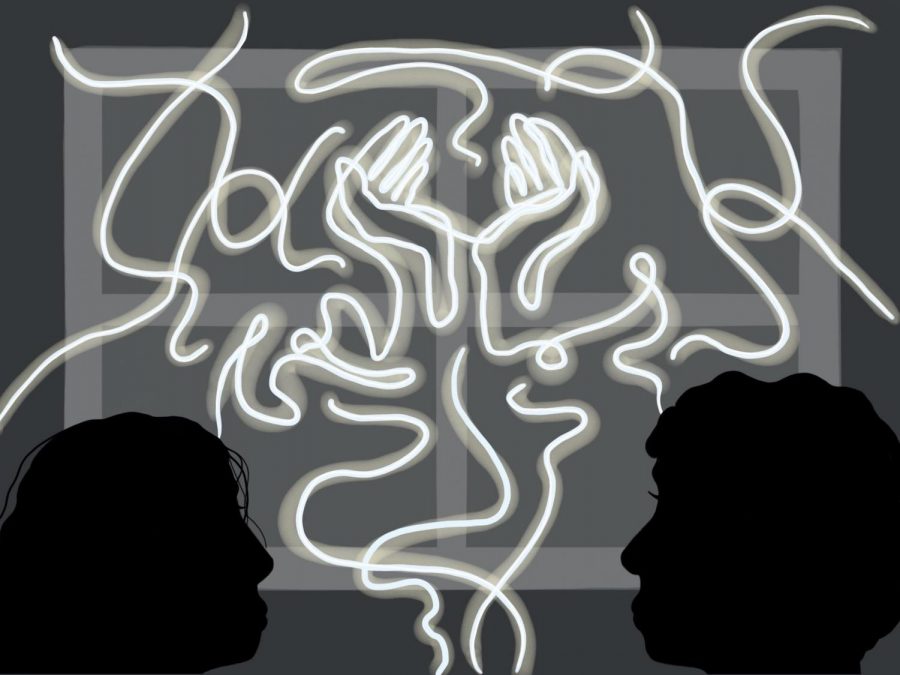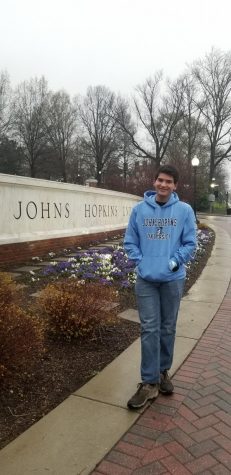How to be optimistic in 2020
October 20, 2020
I consider myself to be an optimist.
I don’t believe that the world is perfect, but I do believe that through dedication, unity and effort, humanity improves. We push ourselves farther, see a ridge in the distance and demand to know what lies beyond. This mentality has moved us forward for unnumbered generations. Humanity can work together to do things greater than any individual.
Yet, 2020 has challenged this faith. From a pandemic that drives our communities into hiding and forces us to greet loved ones only through a computer screen, to a presidential administration that refuses to treat the issues of the day, to an election with the serious possibility of ending in a constitutional crisis, it’s easy to see only doom and despair before us.
I have fallen prey to this as much as anyone else. There have been nights where all I can do is stare into the darkness, eyes glazed over, unable to devote myself to anything of value. There have been days when I have felt that everything is decaying around me, that the dominion of humanity is coming to its end. This trap is easy to spring with political pundits raising the dangers we face to catastrophic heights and accusing the other party of unleashing chaos, countless people on social media reposting anxiety-producing news and claiming that we are entering a crisis similar to the fall of Rome.
How do we stay optimistic with such a grim reality?
There is no single answer to this question, and my faith in my own response varies from day to day, but I believe that the strength of humanity lies in our collective ability to become greater than ourselves. To go beyond the horizon. To climb to new heights. We are capable of coming together to transform and create the reality around us.
Yet, to quote author John Green, “the contemporary human tragedy [is] being at once far too powerful and not nearly powerful enough.”
We can build skyscrapers, yet our bodies are still bound to the coils of mortality. There are many things that we are unable to do this year, but we are still able to come together. We are still able to find communities and people that bring out the best in us and challenge us to be greater.
This is not easy work. Our systems guide us towards seeing others not as people, but as objects: pieces to be moved, experienced and used as needed.
To use the language of Jewish philosopher Martin Buber, we view our relationships with others as “I-It.” In this mindset, people aren’t living beings but objects, tools to be manipulated and thrown away. It is this mentality that has allowed us to conquer our planet, yet it also divides us from one another at a fundamental level.
How do we combat this tendency and continue to create living communities that offer us light in the darkness? We must view our relationships as “I-You… [connected] in a living, reciprocal relationship to a single living center, and… in a living, reciprocal relationship to one another.” A community built not out of people, but out of shared and infinite lovingkindness towards one another. When such a community is formed, when the connections between humans are not between objects but between souls, magic happens.
“Extended, the lines of [I-You] relationships intersect in the Eternal You. Every single You is a glimpse of that. Through every single You the basic word addresses the Eternal You.” Human connections, Buber argues, create the light that we seek, calling the immanent God into being and projecting the Divine into the universe. This may be rare, and it may falter, but it happens; I’ve seen it.
It was a late, damp night. I was sitting against the window of a small hotel talking to a new friend when she began sharing the most traumatic day of her life: the Parkland shooting. As she told her story, I felt a deep connection—to the pain she expressed and to all that happened in the months since. I had only met her a week prior, but somehow there was a connection that stretched much farther back. Shared history, shared stories, merging into something larger. Strings being drawn out doubled over and woven into a tapestry. That openness to others, willingness to give of the self and to view the person from you as a person channeled the Divine. In that dark place, our connection gave us light.
We are in a dark, dangerous time, but the world is not hopeless. There is radical hope available to all of us if we endeavor to find it and create it.
The work of building a better world on true relationships is not an easy one. It demands that we sacrifice ourselves in service of something greater, that we expose our wounds to each other and use that shared pain to grow. But, it is work worth doing. The fight against the darkness has always been there, it may be darker now, but that only means we must channel more light.
As we approach the end of 2020, we must continue the struggle, and in that struggle, find meaning for ourselves and others.
In the words of Pirkei Avot, “It is not your duty to finish the work, but neither are you at liberty to neglect it.”










